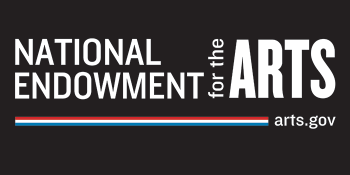"We are co-creators of the Earth...we must take responsibility.”
~ Fr. Leonard Sudlik, St. Robert of Newminster Catholic Church
The book "Moral Ground: Ethical Action for a Planet in Peril" poses the question of whether or not human beings have a moral or ethical responsibility to preserve the earth for the future. Certainly, the citizens of Grand Rapids have unique views depending on their knowledge, backgrounds, and occupations. Father Leonard Sudlik, pastor of St. Robert of Newminster Catholic Church in Ada, offers his response from a religious and moral point of view.
For Fr. Sudlik, environmental responsibility is rooted in “loving your neighbor as yourself,” The Golden Rule in Christian teaching. Sudlik's definition of neighbor stretches from someone living next door, to an orphan in China, to the people walking in our footsteps generations from now. Catholics believe that God created man in his image and likeness, and as such, Sudlik states, “We are co-creators of the Earth...we must take responsibility.” Everything is a gift to be used responsibly by human beings. The Pope made headlines in recent years adding seven “new” deadly sins, one of which is polluting the earth. Having a negative impact or apathy towards the health of the environment is simply immoral behavior. The consensus today seems to hold that numerous people care about the environment so long as the actions to preserve it do not require the discomfort of changing their lives, but as Sudlik states, “Morality isn’t relative, we hope.”
When asked if humans have the responsibility to preserve the earth for the sake of species other than themselves, Sudlik responds, “One would have to be careful in Christian ethic that tadpoles don’t have the same pull that [humans] do.” He believes that the creation story explicitly states that God created the Earth and its contents for human beings to use to nourish and benefit their lives. God requires humans to treat all other living things with dignity and respect, but the main purpose of the Earth is the pursuit of human purpose.
An intense issue in the environmental debate today is the world’s dependence on oil. Sudlik, however, mentions the great power of ingenuity that lies within the intellect God gave to human beings. Humans have been finding new ways to obtain energy when the need arrives for thousands of years. Sudlik cites the success of using peat when wood sources began to dwindle, then the use of coal, and now oil is the energy of choice. Clearly for the sake of the future environment, new sources of energy need to be found. He said human beings clearly have the intellect and ingenuity to discover new methods to meet their needs.
One matter of crucial importance, as Sudlik points out, is that change takes time. Patience is a virtue. With an incredibly high population that continues to grow, change cannot happen over night. The climate data is still incredibly new. An appreciable amount of time may need to go by in order to first, properly educate the masses and, second, wait for them to accept the data as a truth that requires immediate action. Time is also required for change in lifestyle.
Sudlik cites the massive move of the typical American family to suburbia over the choice of city life as a roadblock to decreasing pollution. With the increasing choice to live the suburban lifestyle, we are more and more confining ourselves to vehicles as modes of transportation. Public transport, bike lanes, safe walking paths and carpooling are all lifestyle changes that may take time for people to grow accustomed to and embrace.
Sudlik points out that it should also be considered that oil companies employ copious amounts of people and have a huge stake in an already unstable economy. Throwing out oil for electric cars in one swift action may not be a viable option for the greater good of the population. Changes will have to be made slowly and steadily so that families employed or invested in the companies can lead stable lives and provide for their children.
Some may look at the climate crisis rather hopelessly, citing human beings as being selfish by nature, which results in a lack of action when sacrifices need to be made. Sudlik begs to differ though, citing, for example, efforts in AIDS awareness, missions, and charities. Why do we do this? Because we care for one another and take responsibility. The same can happen with the environment as awareness increases. As Sudlik mentions, the mere fact that this question is being asked is hopeful; 50 years ago this would not be happening. Most people were simply not talking about this issue.
For Father Sudlik, the task is to challenge ourselves to change our lives and take action in carrying out the responsibility that the gift of being human demands.
-The Moral Ground town hall meeting will be at 7:00 pm Tuesday, October 26, 2010 at Spectrum Theater.
The Rapidian, a program of the 501(c)3 nonprofit Community Media Center, relies on the community’s support to help cover the cost of training reporters and publishing content.
We need your help.
If each of our readers and content creators who values this community platform help support its creation and maintenance, The Rapidian can continue to educate and facilitate a conversation around issues for years to come.
Please support The Rapidian and make a contribution today.
